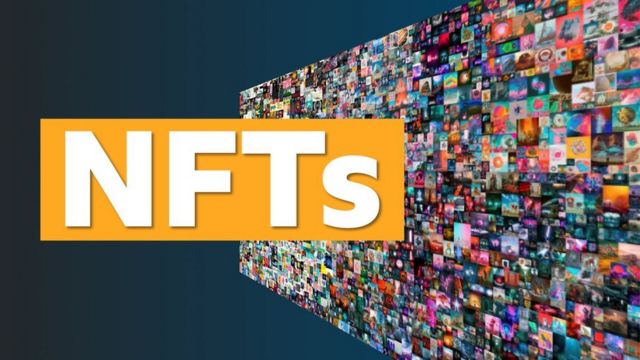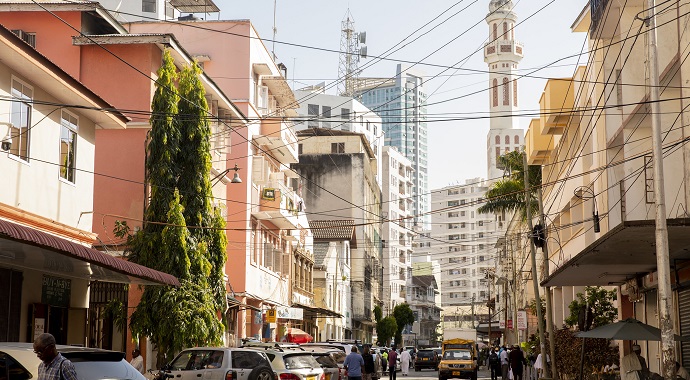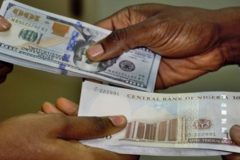The past few days have been good for NFT in Africa—Nigeria and Ghana, to be precise. From a group of Ghanian pallbearers who just became millionaires to the old Nigerian street drummer who now has thousands of naira in the bank, everybody can see the manifestation of cryptocurrency’s promises: decentralised economy and borderless accessibility of wealth.
It also became clearer that you don’t have to be tech savvy before benefitting from the decentralised economy. While there are likely many other interesting things happening in the African NFT space, this is a thread of two tales—the coffin dance and the drummer smile—which have been tagged as the biggest NFT proponents yet on the continent.
The coffin dance
It was in 2020, during the pandemic, when a video of some Ghanaian pallbearers dancing with a coffin on their shoulders went viral. It soon became a meme people used to indicate danger or warn others of a seemingly bad aftermath. On April 9, the leader of the group Benjamin Aidoo sold the viral coffin dance as NFT for 372 ETH ($1.046 million).
The NFT, which was listed for 1 ETH around 10 PM on April 7, was sold within 3 days to @3FMusic. This, according to some NFT operators that spoke to TechCabal, is the most expensive single NFT unit out of Africa.
“I’ve seen African NFT collections do great numbers in terms of prices, but this is the biggest I’ve seen a single African NFT sold for,” said Peace Ojemeh, co-founder of Haze Monkey Society, a collection of 1,242 NFT units.
The sale has also generated a lot of social commentary from different quarters. From NFT and crypto nerds to the newbies still looking for ways to crack into the space, everybody has something to say.
The group is reported to have donated $250,000 out of the money to help support the people of Ukraine.
The drummer smile
Similarly, on April 1, Adisa Olashile, a Twitter user and phone photographer, who mints and sells his works as NFT, posted a tweet—a picture of him using his phone to snap an old drummer; and 3 pictures of an old man and his drum. The tweet went viral on social media and sparked more NFT conversations on Nigerian Twitter, over the weekend.
Olashile listed 2 of the images—titled: The Drummer and The Drummer Smile—as NFTs on OpenSea, the world’s biggest NFT marketplace, and they were collected for 0.3 ETH each; that’s a little over 1 million naira. Olashile, keeping to his promise, went back to the man and gave him 50% of the money. He made a video of the event, and social media, for the third time, was agog. While some people sang his praises and prayed for him, others began to hatch plans of how to snap pictures of old men on the street, and snag their own NFT breakthrough story.
Besides the whole excitement of the random act of kindness that turned into a profitable venture for both parties, the underlying, and intriguing, part of it all is how much consciousness the events have driven to NFT itself. People are curious about the subject, wanting to know how they can get into the space, and others, still sceptical about it, called it—loudly more than ever—a bubble that would soon burst.
Google Trends shows that NFT was one of the most searched words on Friday when the video of Olashile handing the sum 600,000 to the drummer hit the internet. In Ojemeh’s words, “It’s interesting to see NFT turning into a buzzword in Nigeria.”
Could this be the biggest attention NFT has gotten in Africa?
African tech operators like Victor Asemota feel so. He is of the opinion that Olashile and Baba Onilu, as the drummer is popularly called, may have given NFT its biggest exposure yet in Nigeria. It’s indeed incredible that it’s a random act of kindness and not the wailing cry of WAGMI (we all gonna make it) that gave NFT its biggest shout-out and exposure in the country.
“The sale of the old man’s art was impactful and shows how technology could help someone who doesn’t know anything about it and change their life for good,” said Samuel Akinosho, NFT collector and co-founder/CEO at Kingdom, a blockchain infrastructure company.
Olashile, who is currently a corps member, said in one of his tweets that he always met Baba Onilu man at the National Youth Service secretariat and decided to make him smile with his camera. “I hope you all see the emotions in his smiles,” he tweeted. It turns out Olashile didn’t just put a smile on the drummer’s face, he has also changed his life and how the general public perceive NFTs—to some extent, and for now.
Even though regulatory crackdown hasn’t allowed cryptocurrency to go mainstream yet in Africa, the continent remains one of the major hubs for the technology. For instance, The Africa Report said that despite the government trading restriction between 2020 and 2021, Africa had the fastest cryptocurrency adoption rate in the world at 1,200%.
As the continent continues to learn crypto, NFT proponents like Nigerians Peace Ojemeh, Anthony Azekwoh, Osinachi, and now Adisa Olashile and Ghana’s Benjamin Aidoo, would continue to find ways to grow the ecosystem into a formidable and lucrative one.




















